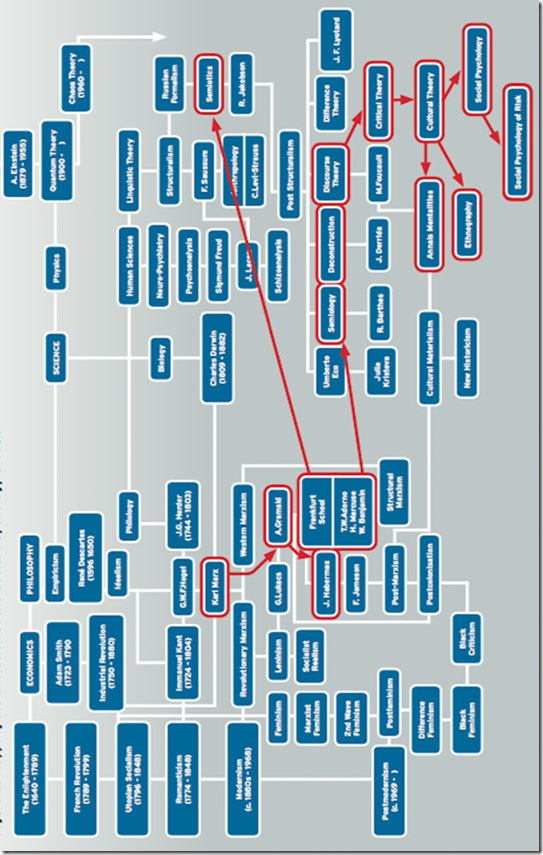 The beginning of History is felt in Historiography, the philosophy of History.
The beginning of History is felt in Historiography, the philosophy of History.
The projection of History as a collection of facts and dates demonstrates that one doesn’t know History.
One of the best schools of History to help learn History is the Annales School of History. The Annales School or, History of Mentalities, aligns with the Discipline of Social Psychology and the emergence of the Frankfurt School in the work of Lefebre and Bloch. Annales History is social history, and views the world through the lens of Socialitie.
Worldview as philosophy cannot be separated from being or the way one understands the lived past.
Historiography teaches us that hermeneutics (the theory of interpretation) cannot be separated from the observation of events.
There is no objective history. Indeed, learning about objectivism and subjectivism is the first lesson in understanding History.
You won’t read about hermeneutics or historiography in any investigations method in safety globally. Such are the many silences of safety (https://safetyrisk.net/category/safety-culture-silences/ ).
It is the many silences of Safety that enable the delusions of objectivity and deontological ethics.
So, when we read about a so-called ‘History of Safety’ we are not reading some objective account of events, we are reading someone’s subjective understanding of events according to their worldview. Most of the Histories of Safety I have read have been written by engineers. The chronicling of events is selective according to worldview and most often in safety, no one declares or event knows that worldview. I have declared in many places my own worldview and the its rationale. It can be represented semiotically as in Figure One. Evolution of SPoR.
Figure One. Evolution of SPoR
The first step in any Ethic of History is to declare transparency of worldview.
At last when a Behaviourist owns their worldview you know why persons end up being demonized and brutalised. Unfortunately, most times the Behaviourist and engineer imagine that such a worldview is objective. More so, when such a worldview acts on this assumption it is often given authoritarian weight as if there is no other legitimate view.
It would be just as valid to write a History of Safety as a History of Brutalism as to write a History of Safety as a Salvation History. The Salvation History in safety discourse (rightly named by Dekker) is most often perpetuated by a worldview of engineering that that no cognizance of historiography or hermeneutics. It is such a worldview that so easily constructs zero as a theology (https://safetyrisk.net/the-spirit-of-zero/ ), especially in its discourse on harm and suffering (Dekker).
Of course, when a safety investigation comes to the courts it is a completely different issue. Historiography is 101 for lawyers, who know that the law and regulation are constructed and interpreted by the courts, politicians and the legal system. This is why so many people in safety get incensed at the outcomes of court proceedings. This is because Safety has no hermeneutic to understand Law or Jurisprudence. The lawyer knows that the courts construct the Law and that objectivity is myth.
If you want to understand this or how the Law understands safety, you can watch this video series: https://vimeo.com/showcase/3938199 or study face to face with Greg Smith and I in Perth in October (https://safetyrisk.net/due-diligence-and-holistic-ergonomics-workshops/ ). Due Diligence is NOT about 6 propositions objectified in the ACT. Indeed, Due Diligence is about qualitative expectations in the Act and Regulation and doesn’t expect any quantitative measure. Such also is the nature of ALARP (https://vimeo.com/162637292 ).
One thing is for sure, safety engineering is not the place to find a mature or ethical understanding of the History of Safety. A lack of transparency in subjectivity is unethical.
Similarly, there is much to read in Historiography and Hermeneutics that could improve one’s approach to incident investigations. We touch on this in our SEEK program (https://cllr.com.au/product/seek-the-social-psychology-of-event-investigations-unit-2-elearning/ ).
This is why a study of Historiography should be foundational to any WHS curriculum (https://safetyrisk.net/isnt-it-time-we-reformed-the-whs-curriculum/; https://safetyrisk.net/curriculum-and-bodies-of-knowledge-as-instructional-affordances/; https://safetyrisk.net/knowledge-and-curriculum-for-risk-and-safety-people/ ).
5. ALARP from Human Dymensions on Vimeo.




Do you have any thoughts? Please share them below